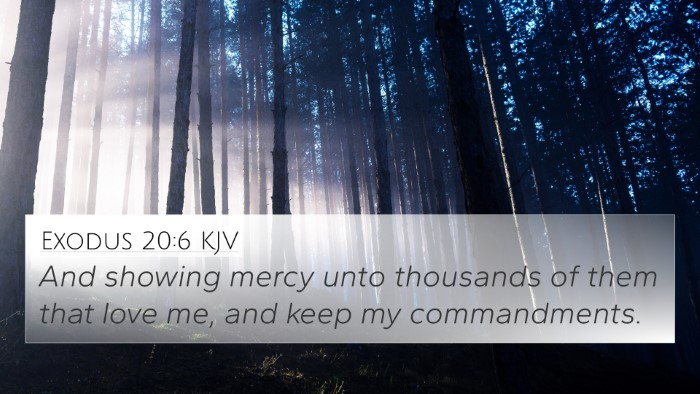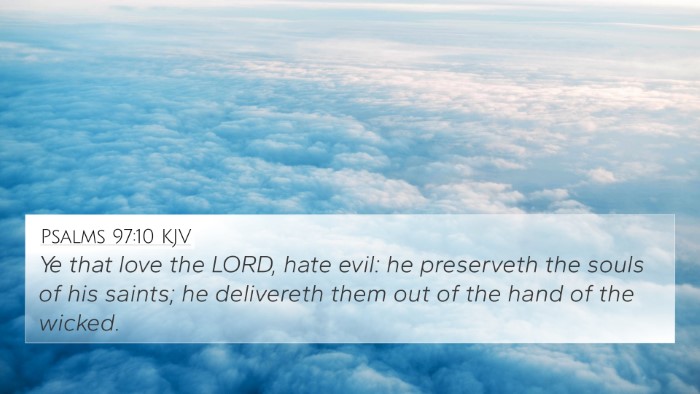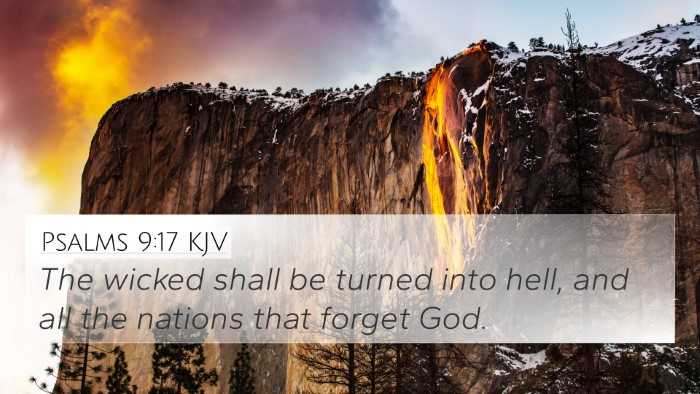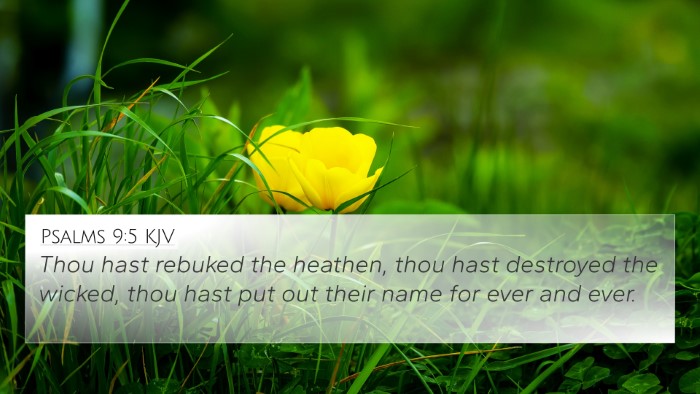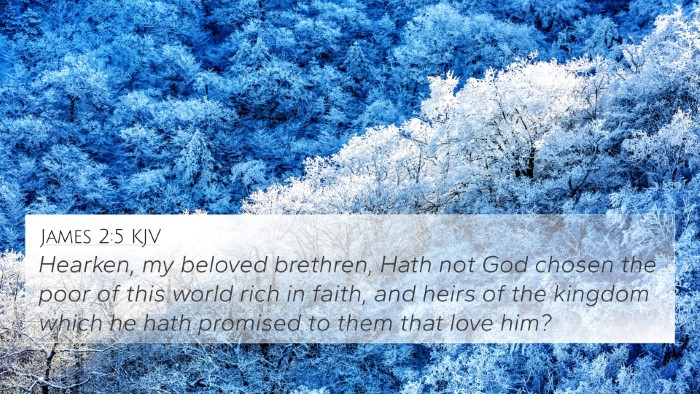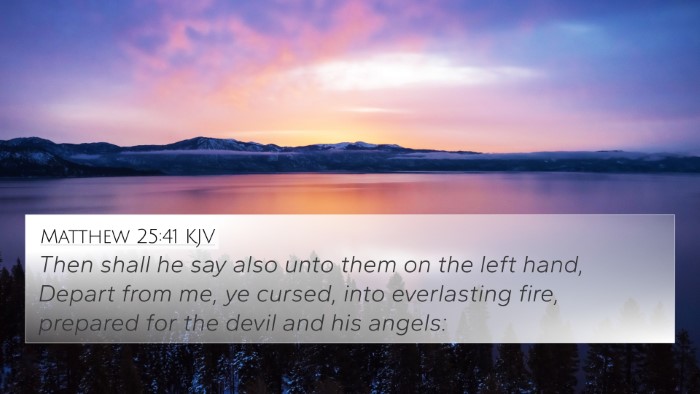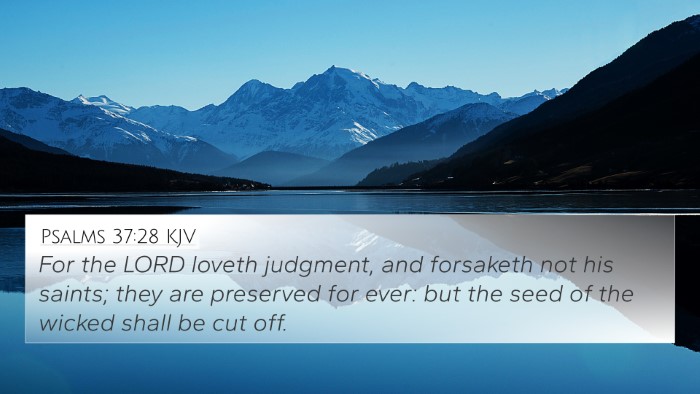Psalm 145:20 - "The LORD preserves all who love him, but all the wicked he will destroy."
This verse encapsulates a profound theological message concerning God's relationship with humanity. The passage contrasts the fate of the righteous with that of the wicked, highlighting God's protective nature towards those who love Him while emphasizing His judgment against evil.
Meaning and Interpretation
The message embedded in Psalm 145:20 can be understood through various commentaries:
- Matthew Henry's Commentary:
Henry emphasizes the grandeur of God's protection over His people. He notes that God's preservation is a source of comfort, suggesting that true love for God aligns believers with divine care. The commentary reveals that, in a world filled with moral chaos, those who maintain their faith in God's goodness can confidently trust in His safeguarding grace.
- Albert Barnes' Notes:
Barnes highlights the assurance given to believers in the protective nature of God. He discusses how God's preservation is not merely a passive act but an active engagement that ensures the well-being of those who are faithful. Furthermore, he underscores the scriptural truth that God's holiness demands judgment, therefore the wicked will not escape consequences for their actions.
- Adam Clarke's Commentary:
Clarke expands on the idea of divine preservation, suggesting that it not only applies to physical well-being but also encompasses spiritual sustenance. He connects this verse to the broader narrative of God’s care throughout the Bible and the ultimate triumph of good over evil. His analysis provides insight into the duality of God's nature — loving and just.
Bible Verse Cross-References
This verse interrelates with several other passages, illustrating broader biblical themes. Below are key cross-references:
- Psalm 37:28: "For the LORD loves the just and will not forsake his faithful ones." - This verse reiterates God’s commitment to safeguarding those who live righteously.
- Proverbs 10:29: "The way of the LORD is a refuge for the blameless, but it is the ruin of those who do evil." - The contrast between the righteous and wicked is prominent here, underlining the protective aspect of God's ways.
- 2 Peter 2:9: "If this is so, then the Lord knows how to rescue the godly from trials and to hold the unrighteous for punishment on the day of judgment." - This New Testament verse reaffirms God’s preservation of the faithful while condemning the unrighteous.
- Matthew 25:46: "Then they will go away to eternal punishment, but the righteous to eternal life." - This emphasizes the final destination of both the wicked and the righteous, linking it to the themes of judgment and preservation.
- Romans 8:28: "And we know that in all things God works for the good of those who love him, who have been called according to his purpose." - This reflects the overarching theme of God working on behalf of those who love Him, consistent with Psalm 145:20.
- John 10:28: "I give them eternal life, and they shall never perish; no one will snatch them out of my hand." - Jesus affirms His protective promise towards believers, echoing the sentiment in Psalms.
- Revelation 21:8: "But the cowardly, the unbelieving, the vile, the murderers, the sexually immoral, those who practice magic arts, the idolaters and all liars—they will be consigned to the fiery lake of burning sulfur. This is the second death." - A stark reminder of the fate awaiting the wicked, closely tied to the themes presented in Psalm 145:20.
Thematic Connections and Cross-Referencing
When studying Psalm 145:20, it becomes crucial to utilize tools for Bible cross-referencing for deeper understanding. The connections outlined in the references draw a clear thematic line between love for God and divine protection while simultaneously illustrating the inevitable consequences for unrighteousness.
Tools for Bible Cross-Referencing
Effective cross-referencing can be achieved through various methods:
- Bible Concordance: Utilize concordances to find words and themes across scripture that connect with Psalm 145:20.
- Bible Cross-Reference Guide: Many Bibles come with built-in reference systems that allow readers to explore linked texts.
- Cross-Reference Bible Study: Engage in study that correlates this verse with others, examining themes of love, judgment, and preservation.
- Comprehensive Bible Cross-Reference Materials: Seek resources that provide a broader context and more connections to biblical narratives.
Finding Cross-References
Identifying connections between Old and New Testament verses enriches one’s understanding of Scripture:
- Consider how the themes of love and judgment found in Psalm 145:20 are echoed in the teachings of Jesus and the Apostles.
- Explore specific themes across the Bible to gather a more nuanced understanding of God's character and His interactions with humanity.
Conclusion
Psalm 145:20 serves as a poignant reminder of God’s love and justice. The protective nature of God towards those who love Him is beautifully articulated throughout Scripture. Engaging in comparative Bible verse analysis through cross-referencing strengthens one’s faith and comprehension of divine principles.
If you are seeking to deepen your understanding of how scriptures relate to each other, consider the various tools and methods outlined here for effective study. The interconnectedness of the Bible enriches our spiritual journey and guides us toward a deeper relationship with God.



